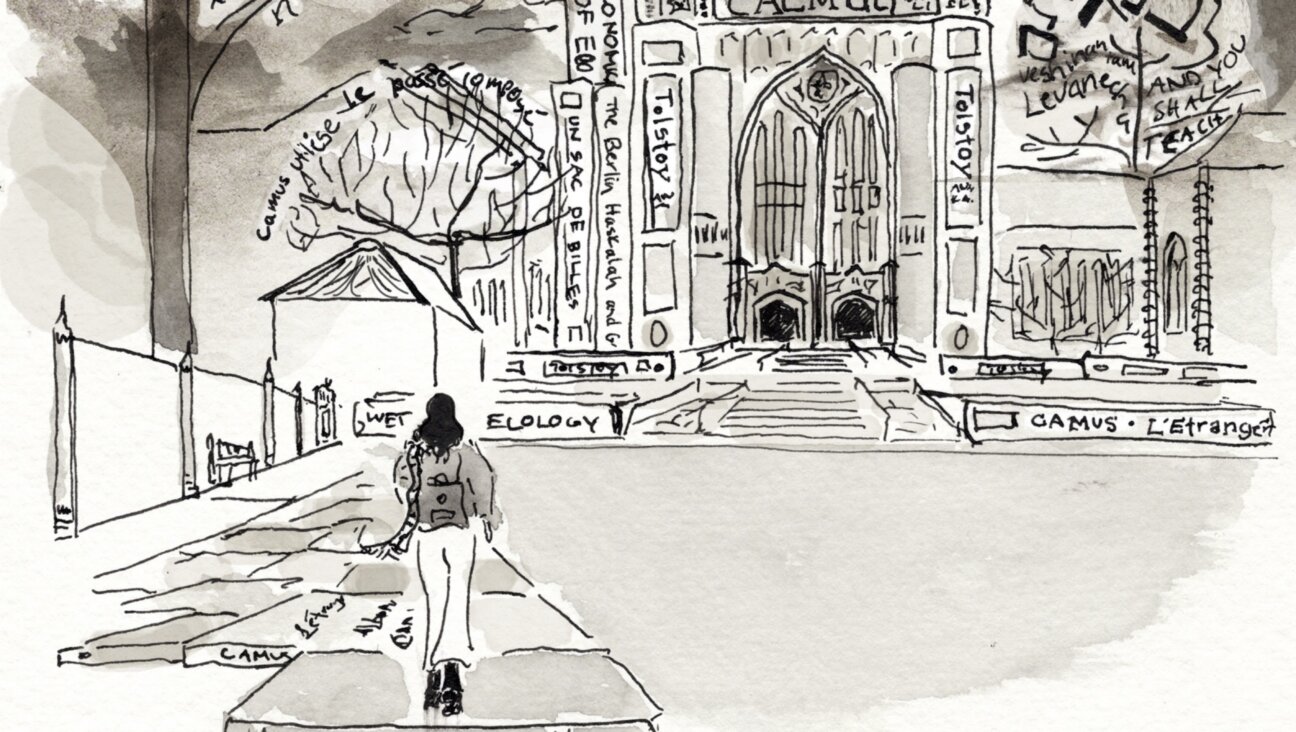Two Agencies, Three Opinions
It’s the nature of political systems that differences of opinion and clashes of interest will darken the mood from time to time. Not to worry. It’s the normal give-and-take of robust debate that makes democracy work. One side wins, another side loses, and everyone is the better for the experience.
That’s equally true in political sub-systems like the Jewish community. We all like to joke that two Jews will have three opinions. But 6 million American Jews have more than just 6 million opinions; they have a vast network of institutions and ideological groupings, with assets to protect and values to advance. No less important, they have a respected place in the American body politic. When the Jews speak out as a group, America listens. That, too, is an asset worth protecting.
For all those reasons, it’s healthy when two communal agencies as broad-based as United Jewish Communities and the Jewish Council for Public Affairs bicker over something like the federal budget. As Nathaniel Popper reports, the differing views are rooted not just in ideology, but also in differing structures and the interests they represent.
UJC, a network of federated Jewish philanthropies, sees the budget primarily through the prism of its affiliated agencies and their needs. If Congress allocates enough money to the right programs, Jewish charities can do their jobs. It’s UJC’s job to try and make that happen.
The JCPA, just as naturally, represents a different set of interests. It brings together 123 local community councils and 13 national agencies that are in the business of taking positions on matters of public policy. The council helps the members trade notes and work together when possible. In its early years, its members’ primary concern was ending the religious and racial discrimination that kept Jews and blacks out of jobs and schools. Later on, it took on America’s discriminatory immigration laws, then turned its attention to the plight of Soviet Jews. In each case the issue wasn’t protecting the members’ institutional interests, but advancing the interests and values of American Jews as a group, as determined in open council debate.
If the system seems broken lately, there’s fault on both sides. The JCPA is often seen by critics as blindly wedded to the liberal agenda of its founders. Many council members seem frequently to have lost sight of what it means to advance not just the values, but also the interests of their community. What that means today is no longer obvious. The world has changed, and we don’t have the new map yet. It’s more important than ever to listen to one another and to understand the other. In a voluntary community, it’s too easy for those who lose a vote to walk away.
UJC, on the other hand, often seems unable to grasp the idea of funding, as a Jewish communal trust, an institution whose purpose is not simply to protect UJC’s agencies but to discuss whatever is on the minds of Jews. That’s the meaning of leadership in a democratic system: enabling the community to go about its business, without controlling the outcome.
















